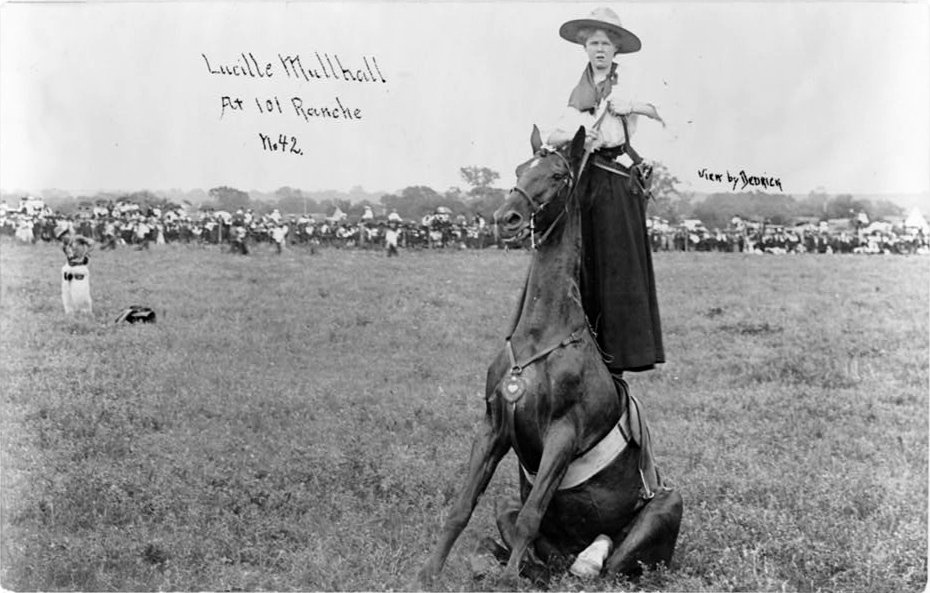
Lucille Mulhall, American cowgirl and Wild West performer, standing on a seated horse, 1908.
• Lucille Mulhall, teen cowgirl: “She introduced countless audiences to the idea that a woman could rope and ride better than men. ‘Although she weighs only 90 pounds she can break a broncho, lasso and brand a steer and shoot a coyote at 500 yards,’ wrote one reporter. Mulhall became a symbol of the Old West as it ebbed away with the turn of the century. With her ranching background and daring rodeo performances, Mulhall linked herself to open spaces and the freedom found riding astride in a divided skirt and Western saddle.” (Atlas Obscura)
• The drugs that fueled the Third Reich. (The Guardian)
• Sorting through the relics of Gore Vidal: “During the last tumultuous decade of his life, Vidal changed his will and trust and left everything he owned—including his vast literary estate, his Hollywood mansion with its gilt-edged furnishing and malachite bric-a-brac—to Harvard University. He’d never attended Harvard, and this noble bulwark of WASP privilege never found him fit enough for an honorary degree—though the University did gift Vidal a crimson letterman jacket after he gave a speech on campus.” (The Baffler)
• The director of the National Trust for Historic Preservation on the future of the field. (Curbed)
• Shirley Jackson’s second shift: “Shirley Jackson the novelist and Shirley Jackson the wife could not have been more at odds with one another, nor more intimately entwined. While Jackson would come to out-publish and out-earn Hyman—an influential literary critic of his day—Jackson would not escape her dual identity, forced to negotiate the dissonance of being both domestic caretaker and professional author during a period that produced such feminist critiques as Betty Friedan’s The Feminine Mystique (1963). (Friedan’s book even condescendingly characterizes Jackson as suffering the false consciousness of considering herself always housewife before writer.) How exactly do we begin to know a life—not to mention a person—so muddled with paradoxes and contradictions?” (The New Republic)
• Marguerite Duras on the perils of love and associating with men. (London Review of Books)